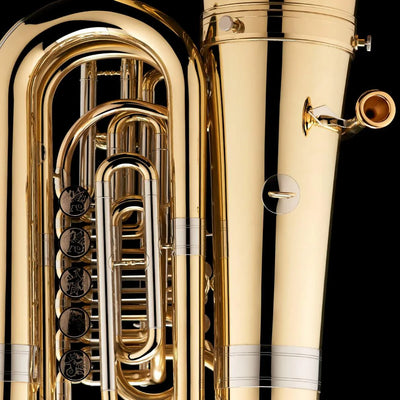Here at Wessex Tubas, music is more than just our work; it’s our passion, and something we believe everyone should embrace in some form - whether by mastering an instrument or supporting those who have (let’s face it, most of us can’t resist the allure of a live performance).
Learning to play a musical instrument is something, as children, we’re encouraged to do in school by our teachers or after school by our parents, but is something which can hugely benefit us as adults, too.
You’re never too young or too old to learn a musical instrument and the benefits of doing so - at any age! - are vast.
So, let us explore the age-old question:
Why are musical instruments important?
Improving your memory: learning a musical instrument isn’t just about learning a new skill or building up your artistic repertoire, learning an instrument is also really good for improving key cognitive functions such as your memory. Perhaps the saying should be ‘a musician never forgets’!?
Increasing your sense of responsibility: when you have to regularly clean and maintain an instrument, attend set lessons at specific times, and give up some of your evenings and weekends to performing, learning a musical instrument teaches you a whole new sense of responsibility; organisational skills, and time management.
Sharpening your mathematical skills: music requires lots and lots of counting; counting breaths, beats, notes, bars… and if you’re practicing even a couple of times a week, your ability to do mental arithmetic is going to naturally improve. They say practice makes perfect, after all!
Improving your coordination: yes, learning a musical instrument can drastically improve your hand-eye coordination; all that reading of musical notes, and forcing your fingers to translate those notes into meaningful sounds… that’ll do it!
Helping you build social/team skills: particularly when playing as part of a band or orchestra, you must work with your bandmates to make music; cooperate, and listen to one another. These are all transferable skills you can use both in your social life, and in the workplace.
Teaching you perseverance & determination: No musician plays a complex piece of music perfectly first time. To truly master something takes hours & hours of practice, patience, and perseverance; you simply have to devote time and energy to getting it right.
Promoting self-expression: any form of creativity and/or art forces you to express yourself; whether it’s performing a piece of music you’ve written yourself or something from a well known composer - you invest a small piece of yourself within it, and you must always play with emotion. Alongside this, playing with emotion - purging those emotions - is good for relaxation, as well as relieving things like anxiety and stress.
Increasing your lung capacity: when playing an instrument that requires air - like a Tuba or Cimbasso or really any brass instrument! - you need to have a good set of lungs on you to be able to play well; with strength and longevity; forcing you to take deep breaths and expel the air properly for extended periods of time.
We hope that, by reading this, we’ve ignited - or re-ignited! - your passion for taking up a musical instrument, and just how important they are, not only for teaching you new skills and creative ability, but also to strengthening your existing transferable skills like listening, mathematics, and social skills.
Playing a musical instrument of any kind is a unique and special experience that we urge anyone of any age to indulge in - and of course, we highly recommend a brass instrument!
To browse our musical instruments, please visit our online shop.


